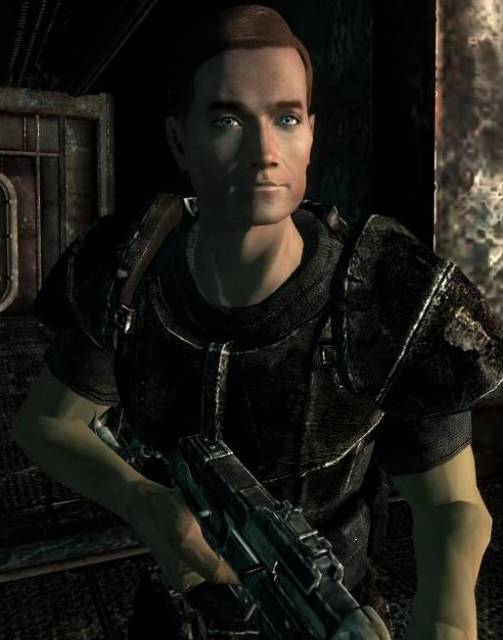
In video games such as; “Mass Effect” or “Fallout 3” the player often runs into androids or other monsters/creatures such as ghouls that are human yet not quite as human as you or I. This is what is described by Gee, Browne, and Kawamura as “The Uncanny Valley” which is that place you enter when things are close to reality but something still is not quite right.In video games such as “Fallout 3” the player is asked to make moral decisions surrounding the rights of these androids as living thinking beings. Much like in Frankenstein, the androids of the post-apocalyptic world of Fallout known as “the Wastelands” are not considered to be human, they are seen as property or creations that are owned. In spite of the fact that they clearly demonstrate moral and ethical reasoning, and that they feel as a human being would. (Schulzke, 2009) In “Fallout 3″ the character is asked to determine if Harkness or A3-21 has the right to live as a free man.”The Replicated Man” quest begins with the player being approached by a scientist from the former Massachusetts Institute of Technology, known in post-apocalyptia as “The Institute” asking the player to retrieve his android A3-21 who has undergone facial reconstruction surgery and is living as Harkness the chief of the city’s police force. Depending on what the player decides, Harkness either ends up being returned to his alleged owner, or he lives as a free man after killing the scientist and his bodyguard.This addresses an important question, what makes us human? Is humanity solely based on genetics? Or is humanity based on how we think, how we act, or how view the world around us? This is the essential question of nature vs. nurture. Is someone human because they choose to be, or because it is chosen for them?Frankenstein’s monster, Harkness, E.D.E, and others are human because we perceive them to be human. The reader determines whether Frankenstein’s monster is worthy of rights, of independence and of the definition of human and this is also true of Harkness. By deciding that humanity is a matter of nurture rather than nature one comes a little bit closer to understanding why we empathize with androids and monsters.
References
Bethesda Game Studios. “Fallout 3.” Published by Bethesda Softworks (2008).
Gee, F. C., W. N. Browne, and K. Kawamura. “Uncanny valley revisited.” In Robot and Human Interactive Communication, 2005. ROMAN 2005. IEEE International Workshop on, pp. 151-157. Ieee, 2005.
Schulzke, Marcus. “Moral decision making in fallout.” Game Studies 9, no. 2 (2009).